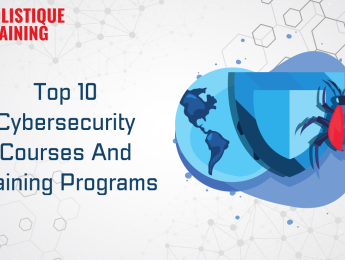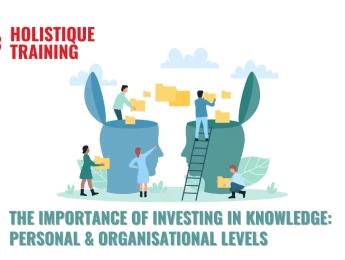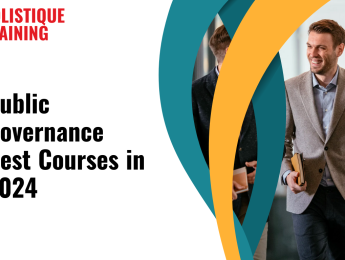- Table of Contents
- Why Choose a Diploma Course?
- Benefits of Diploma Courses
- How Can Diploma Courses Enhance Your Career?
- Skills and Knowledge Acquisition
- How to Choose the Right Diploma Course for You?
- Assessing Your Interests and Career Goals
- What Are the Challenges and Considerations?
- What Are the Future Trends in Diploma Education?
- Conclusion
Introduction
Diploma courses offer a compelling alternative to traditional degree programs for individuals seeking to advance their careers efficiently and cost-effectively. They provide practical, industry-relevant training designed to equip students with specific skills directly applicable in the workforce. With shorter durations, lower costs, and flexible learning options, diploma courses cater to a broad range of professional and personal needs. Whether you aim to enter the job market quickly, enhance your employability, or pursue a new career path, a diploma course can be a strategic step towards achieving your professional goals.
Why Choose a Diploma Course?
Choosing a diploma course can be a strategic decision for various reasons. Below are some of the key benefits and considerations that make diploma courses an attractive option:
Benefits of Diploma Courses
1. Practical and Industry-Relevant Training
Diploma courses are often designed with direct input from industry professionals and focus on practical skills that are immediately applicable in the workplace. This hands-on approach prepares students for specific roles and tasks within their chosen field.
2. Short Duration
Compared to traditional degree programs, diploma courses typically require less time to complete. Many diploma programs can be finished within a year or two, allowing students to enter the workforce more quickly.
3. Cost-Effectiveness
Diploma courses are more affordable than degree programs most of the time. Lower tuition fees and shorter study periods reduce the overall financial burden on students, making education more accessible.
4. Diverse Learning Options
Diploma courses are offered in various formats, including full-time, part-time, and online options. This flexibility allows students to balance their studies with work, family, or other commitments.
5. Broad Range of Subjects
Diploma programs cover a wide array of fields, from healthcare and IT to business and the arts. This variety enables students to pursue their specific interests and career aspirations.
6. Quick Entry into the Job Market
Because of their shorter duration and focus on practical skills, diploma courses enable students to quickly enter the job market. This can be particularly advantageous in industries experiencing skill shortages.
7. Enhanced Employability
Graduates with diplomas often find that their practical training and specialized knowledge make them attractive candidates to employers. This can lead to higher employability rates compared to those with more generalized education.
8. Upgrading Skills
For professionals already in the workforce, diploma courses provide an opportunity to upgrade skills and stay current with industry trends. This can lead to career advancement and increased job security.
9. Pathway to Higher Education
Diploma courses can also serve as a stepping stone to further education. Many institutions offer pathways from diploma programs to degree courses, allowing students to build on their qualifications progressively.
10. Smaller Class Sizes
Diploma programs often feature smaller class sizes, which can lead to more personalized attention from instructors and a more supportive learning environment.
11. Networking Opportunities
Students in diploma courses frequently have opportunities to network with industry professionals and peers, which can be beneficial for career development and job placement.
Choosing a diploma course offers numerous advantages, including practical training, shorter duration, cost-effectiveness, flexibility, and immediate career benefits. Whether you are starting your career, looking to upskill, or planning to transition into a new field, diploma courses provide a viable and attractive pathway to achieving your professional goals.
How Can Diploma Courses Enhance Your Career?
Diploma courses can significantly boost your career prospects through a combination of practical skills training, industry-specific knowledge, and networking opportunities. Here are several ways in which diploma courses can enhance your career:
Skills and Knowledge Acquisition
1. Specialized Training
Diploma courses offer focused and specialized training in specific fields, equipping you with the skills and knowledge directly relevant to your career. This specialized education can make you a more attractive candidate to employers who are seeking specific expertise.
2. Hands-On Experience
Many diploma programs include practical components such as labs, workshops, and internships. This hands-on experience helps you apply theoretical knowledge to real-world situations, enhancing your competency and confidence in your chosen field.
3. Current Industry Practices
Diploma courses are often developed in collaboration with industry professionals, ensuring that the curriculum is up-to-date with the latest trends, technologies, and practices. This alignment with industry standards ensures that you are well-prepared for the demands of the job market.
4. Fast-Tracked Learning
Due to their shorter duration compared to traditional degree programs, diploma courses allow you to quickly gain the skills needed to enter or advance in your career. This fast-tracked learning can help you stay ahead in competitive job markets.
5. Building Connections
Enrolling in a diploma course provides opportunities to connect with peers, instructors, and industry professionals. These connections can be valuable for finding job opportunities, gaining mentorship, and staying informed about industry developments.
6. Career Services and Support
Many institutions offering diploma courses provide career services such as job placement assistance, resume building workshops, and interview preparation. These services can significantly enhance your job search and career progression efforts.
7. Increased Employability
Employers often value the practical skills and industry knowledge that diploma graduates bring to the table. This can lead to higher employability rates and better job prospects compared to candidates with more general education backgrounds.
8. Higher Earning Potential
With specialized skills and training, diploma holders may have access to higher-paying jobs and positions of greater responsibility. The practical expertise gained from diploma courses can lead to quicker promotions and salary increases.
9. Continuing Professional Development
For those already in the workforce, diploma courses offer an excellent way to upgrade existing skills and stay current with industry advancements. This ongoing professional development can improve job performance and open up new career opportunities.
10. Career Transition
If you are looking to change careers, a diploma course can provide the necessary training and credentials to make a successful transition. This targeted education can help you acquire the specific skills needed for your new career path.
11. Adaptability to Change
In today’s rapidly changing job market, having the ability to quickly learn and adapt is crucial. Diploma courses can enhance your ability to acquire new skills and knowledge efficiently, making you more adaptable to industry changes and technological advancements.
12. Building a Diverse Skill Set
Diploma courses can complement your existing qualifications, adding a diverse range of skills to your portfolio. This can make you more versatile and valuable to employers, opening up a wider array of career opportunities.
Table 1: How Diploma Courses Enhance Your Career
How Diploma Courses Enhance Your Career | Description |
Specialized Training | Diploma courses offer focused and specialized training in specific fields, making you an attractive candidate to employers seeking specific expertise. |
Hands-On Experience | Many programs include practical components such as labs, workshops, and internships, helping you apply theoretical knowledge to real-world situations. |
Current Industry Practices | Developed in collaboration with industry professionals, the curriculum is up-to-date with the latest trends, technologies, and practices, ensuring you're prepared for the job market. |
Fast-Tracked Learning | Diploma courses, shorter in duration than traditional degrees, allow you to quickly gain necessary skills to enter or advance in your career, keeping you competitive. |
Building Connections | Diploma courses provide opportunities to connect with peers, instructors, and industry professionals, aiding in job opportunities, mentorship, and staying informed about industry developments. |
Career Services and Support | Many institutions offer job placement assistance, resume workshops, and interview preparation, significantly enhancing your job search and career progression efforts. |
Increased Employability | The practical skills and industry knowledge gained from diploma courses can lead to higher employability rates and better job prospects. |
Higher Earning Potential | With specialized training, diploma holders may access higher-paying jobs and positions of greater responsibility, leading to quicker promotions and salary increases. |
Continuing Professional Development | Diploma courses offer a way to upgrade existing skills and stay current with industry advancements, improving job performance and opening new career opportunities. |
Career Transition | For those looking to change careers, diploma courses provide the necessary training and credentials for a successful transition to a new career path. |
Adaptability to Change | Diploma courses enhance your ability to acquire new skills and knowledge efficiently, making you more adaptable to industry changes and technological advancements. |
Building a Diverse Skill Set | Complementing your existing qualifications, diploma courses add a diverse range of skills to your portfolio, making you more versatile and valuable to employers. |
Diploma courses offer a strategic pathway to enhance your career through specialized training, practical experience, and professional networking. Whether you are starting out, seeking to advance in your current role, or looking to transition to a new career, a diploma course can provide the skills, knowledge, and connections needed to achieve your professional goals.
How to Choose the Right Diploma Course for You?
Choosing the right diploma course is crucial for achieving your career goals and personal aspirations. Here are some steps and considerations to help you make an informed decision:
Assessing Your Interests and Career Goals
1. Identify Your Interests
Start by identifying your passions and interests. Consider what subjects or activities you enjoy and are naturally drawn to. This can help you narrow down the fields you might want to pursue.
2. Define Your Career Goals
Think about your long-term career objectives. Where do you see yourself in five or ten years? Understanding your career goals will help you choose a diploma course that aligns with your professional aspirations.
3. Review Course Descriptions
Carefully review the course descriptions of potential diploma programs. Look at the subjects covered, the skills you will acquire, and the teaching methods used. Ensure the content matches your interests and career goals.
4. Check Curriculum and Syllabus
Examine the curriculum and syllabus in detail. Check for the inclusion of relevant and up-to-date topics, practical components, and industry-specific training. A well-rounded curriculum can provide a comprehensive education.
5. Research Institutions
Investigate the institutions offering the diploma courses you are interested in. Look for accredited and reputable institutions known for their quality education and industry connections.
6. Consider Support Services
Check what support services the institution offers, such as career counseling, job placement assistance, internship opportunities, and mentorship programs. These services can significantly enhance your learning experience and job prospects.
7. Choose the Right Format
Decide whether you prefer full-time, part-time, or online learning. Consider your personal and professional commitments and choose a format that fits your schedule and learning style.
8. Location and Accessibility
Consider the location of the institution if you are opting for in-person classes. Proximity to your home or workplace can affect your daily commute and overall convenience.
9. Compare Costs
Compare the tuition fees and other associated costs of different diploma programs. Consider the return on investment and potential financial aid, scholarships, or payment plans that may be available.
10. Evaluate Value for Money
Assess the overall value of the course by considering factors like the quality of education, reputation of the institution, potential salary increase, and career advancement opportunities post-completion.
11. Check Eligibility Criteria
Review the admission requirements for the diploma courses you are interested in. Ensure you meet the prerequisites, such as educational qualifications, work experience, or language proficiency.
12. Prepare Application Materials
Gather and prepare all necessary application materials, such as transcripts, letters of recommendation,resumes, and personal statements. Meeting all requirements can improve your chances of acceptance.
13. Talk to Alumni and Current Students
Reach out to alumni and current students of the diploma programs you are considering. Their experiences can provide valuable insights into the course quality, teaching methods, and career outcomes.
14. Seek Professional Advice
Consult with career counselors, mentors, or industry professionals. Their expertise can help you make a more informed decision and choose a course that aligns with your career aspirations.
15. Weigh Pros and Cons
Create a list of pros and cons for each diploma course you are considering. Compare factors such as curriculum, cost, duration, flexibility, and career support to make a balanced decision.
16. Trust Your Instincts
Finally, trust your instincts and choose a course that feels right for you. Your enthusiasm and commitment to the course will play a significant role in your success.
Choosing the right diploma course requires thorough research, self-assessment, and careful consideration of various factors. By aligning the course with your interests, career goals, and personal circumstances, you can make an informed decision that sets you on the path to success and career advancement.
What Are the Challenges and Considerations?
Enrolling in a diploma course can be a significant step toward advancing your career, but it also comes with its own set of challenges and considerations. Here’re some key factors to keep in mind:
1. Time Management
One of the significant challenges is managing your time effectively. Balancing study commitments with work responsibilities and personal life might be demanding. Effective time management strategies, such as creating a study schedule and prioritizing tasks, are essential.
2. Maintaining Work-Life Balance
It’s important to maintain a healthy work-life balance to avoid burnout. Ensuring you allocate time for relaxation and personal activities can help keep stress levels in check.
3. Tuition Costs and Fees
Diploma courses can be expensive, and the cost is a significant consideration. It's important to assess whether you can afford the tuition fees and other associated costs, such as textbooks and materials.
4. Financial Aid and Scholarships
Investigate available financial aid options, including scholarships, grants and student loans. Understanding your funding options can help alleviate the financial burden and make education more accessible.
5. Maintaining Motivation
Staying motivated throughout the course can be challenging, especially when juggling multiple responsibilities. Setting clear goals, celebrating small achievements, and staying connected with peers can help maintain motivation.
6. Coping with Academic Stress
Academic pressures, such as assignments and exams, can be stressful. Developing effective study habits, seeking academic support when needed, and practicing stress management techniques are crucial for success.
7. Adapting to Different Learning Styles
Everyone has a unique learning style, and the teaching methods used in diploma courses may not always align with your preferred way of learning. Being adaptable and finding additional resources can help bridge any gaps.
8. Meeting Academic Requirements
Ensuring you meet the academic requirements and prerequisites for the course can be challenging. Regularly reviewing course materials, participating in class discussions, and seeking help from instructors can enhance your understanding and performance.
9. Aligning with Career Goals
Choosing a diploma course that aligns with your career goals is crucial. Conduct thorough research to ensure the course content and outcomes match your professional aspirations.
10. Job Market Conditions
Consider the current job market conditions and demand for skills in your chosen field. Ensuring that there is a demand for the qualifications you will gain can help secure employment after graduation.
11. Selecting the Right Institution
The reputation and quality of the institution offering the diploma course are important considerations. Look for accredited institutions with good track records in your chosen field.
12. Evaluating Course Quality
Investigate the quality of the course curriculum, faculty, and resources. Reading reviews and testimonials from former students can provide insights into the educational experience.
13. Access to Technology
For online or blended learning diploma courses, access to reliable technology and the internet is crucial. Ensure you have the necessary tools and a conducive learning environment.
14. Logistical Challenges
If the course requires in-person attendance, consider the location and any associated travel or relocation logistics. Proximity to your residence can impact your daily schedule and overall experience.
15. Long-Term Career Planning
Consider how the diploma fits into your long-term career plan. Will it provide the necessary skills and qualifications for your future goals? Evaluating the long-term benefits can guide your decision.
16. Lifelong Learning and Further Education
Think about the opportunities for further education and professional development after completing the diploma. Ensuring that the course provides a foundation for lifelong learning can be beneficial for ongoing career advancement.
Table 2: Challenges and Considerations of Enrolling in a Diploma Course
Challenges and Considerations of Enrolling in a Diploma Course | Description |
Time Management | Balancing study commitments with work and personal life can be demanding. Effective strategies, such as creating a study schedule and prioritizing tasks, are essential. |
Maintaining Work-Life Balance | Ensuring you allocate time for relaxation and personal activities is important to avoid burnout and keep stress levels in check. |
Tuition Costs and Fees | Diploma courses can be expensive. Assess whether you can afford the tuition fees and other costs, such as textbooks and materials. |
Financial Aid and Scholarships | Investigate available financial aid options, including scholarships, grants, and student loans, to help alleviate the financial burden. |
Maintaining Motivation | Staying motivated can be challenging. Setting clear goals, celebrating small achievements, and staying connected with peers can help maintain motivation. |
Coping with Academic Stress | Academic pressures can be stressful. Developing effective study habits, seeking academic support, and practicing stress management techniques are crucial. |
Adapting to Different Learning Styles | Teaching methods may not always align with your preferred learning style. Being adaptable and finding additional resources can help bridge gaps. |
Meeting Academic Requirements | Ensuring you meet the course requirements and prerequisites can be challenging. Regularly reviewing materials, participating in discussions, and seeking help can enhance performance. |
Aligning with Career Goals | Choosing a course that aligns with your career goals is crucial. Conduct thorough research to ensure the course content matches your professional aspirations. |
Job Market Conditions | Consider the current job market and demand for skills in your chosen field. Ensuring demand for your qualifications can help secure employment post-graduation. |
Selecting the Right Institution | The institution's reputation and quality are important. Look for accredited institutions with good track records in your field. |
Evaluating Course Quality | Investigate the quality of the curriculum, faculty, and resources. Reviews and testimonials from former students can provide insights into the educational experience. |
Access to Technology | For online or blended courses, access to reliable technology and the internet is crucial. Ensure you have the necessary tools and a conducive learning environment. |
Logistical Challenges | Consider location and associated travel or relocation logistics if in-person attendance is required. Proximity to your residence can impact your daily schedule and experience. |
Long-Term Career Planning | Evaluate how the diploma fits into your long-term career plan. Ensure it provides the necessary skills and qualifications for your future goals. |
Lifelong Learning and Further Education | Consider opportunities for further education and professional development post-diploma. Ensuring the course provides a foundation for lifelong learning can aid ongoing career advancement. |
Choosing to pursue a diploma course involves careful consideration of various challenges and factors. By addressing these considerations proactively and planning accordingly, you can navigate potential obstacles and make the most of your educational investment. This strategic approach will help you achieve your career goals and ensure a rewarding learning experience.
What Are the Future Trends in Diploma Education?
The landscape of diploma education is continuously evolving, influenced by technological advancements, changing industry demands, and shifting educational paradigms. Here are some key future trends shaping diploma education:
1. Growth of Online Learning Platforms
The rise of online learning platforms and digital resources is making diploma courses more accessible. Institutions are increasingly offering online and hybrid diploma programs, allowing students to learn from anywhere in the world.
2. Integration of Artificial Intelligence (AI)
AI is being integrated into educational tools to provide personalized learning experiences. AI-driven analytics can track student progress, suggest resources, and offer tailored feedback, enhancing the learning process.
3. Virtual and Augmented Reality (VR/AR)
VR & AR technologies are being used to create immersive learning environments. These technologies can simulate real-world scenarios, providing hands-on experience in fields like healthcare, engineering, and design.
4. Emphasis on Soft Skills
Employers are increasingly valuing soft skills such as communication, teamwork, and problem-solving. Diploma courses are adapting by incorporating modules that focus on developing these essential skills.
5. Industry Partnerships and Collaboration
Collaboration between educational institutions and industries is growing. These partnerships ensure that diploma courses remain relevant and aligned with current industry standards, providing students with up-to-date knowledge and skills.
6. Focus on Sustainability and Green Skills
As industries shift towards sustainable practices, diploma courses are incorporating sustainability education. Programs related to renewable energy, environmental management, and sustainable business practices are gaining popularity.
7. Stackable Credentials
The concept of stackable credentials is becoming more prevalent. Students can earn multiple smaller credentials or micro-credentials that build towards a full diploma, offering flexibility and allowing them to tailor their education to specific career goals.
8. Lifelong Learning and Continuing Education
The importance of lifelong learning is being recognized, with diploma programs offering pathways for continuous education. Professionals can return to education to update their skills and stay competitive in their fields.
9. Shorter, More Focused Programs
There is a trend towards shorter, more focused diploma programs that target specific skills and knowledge areas. These programs are designed to meet the fast-paced changes in various industries, allowing students to quickly adapt and upskill.
10. Inclusive Education Practices
Diploma programs are adopting more inclusive education practices to cater to a diverse student population. This includes providing support for students with disabilities, offering flexible learning schedules, and ensuring a diverse curriculum.
11. Globalization of Education
Diploma courses are becoming more global, with institutions offering international programs and partnerships. This globalization allows students to gain cross-cultural competencies and access education from prestigious institutions worldwide.
12. Personalized Learning Paths
Educational institutions are utilizing data analytics to create personalized learning paths for students. This approach ensures that each student can progress at their own pace and focus on areas where they need improvement.
13. Adaptive Learning Technologies
Adaptive learning technologies are being used to customize the learning experience based on individual student performance. These technologies adjust the difficulty of content in real-time, providing a tailored educational experience.
The future of diploma education is characterized by technological innovation, responsiveness to industry needs, and a commitment to lifelong learning and inclusivity. By staying attuned to these trends, educational institutions can offer relevant and effective programs that equip students with the skills and knowledge necessary for success in an ever-changing job market. Students, in turn, can benefit from flexible, accessible, and up-to-date educational opportunities that align with their career aspirations and personal circumstances.
Conclusion
In summary, diploma courses represent a valuable educational pathway that offers numerous advantages for career advancement and personal growth. Their practical and industry-relevant training, shorter duration, and cost-effectiveness make them an appealing choice for many. The flexibility and diverse range of subjects available allow learners to tailor their education to their specific interests and career goals. As the job market continues to evolve, the focused and adaptable nature of diploma programs ensures that graduates are well-prepared to meet the demands of various industries. Whether you are just starting out, looking to upskill, or considering a career change, choosing a diploma course can open doors to new opportunities and pave the way for a successful and fulfilling professional journey.


























